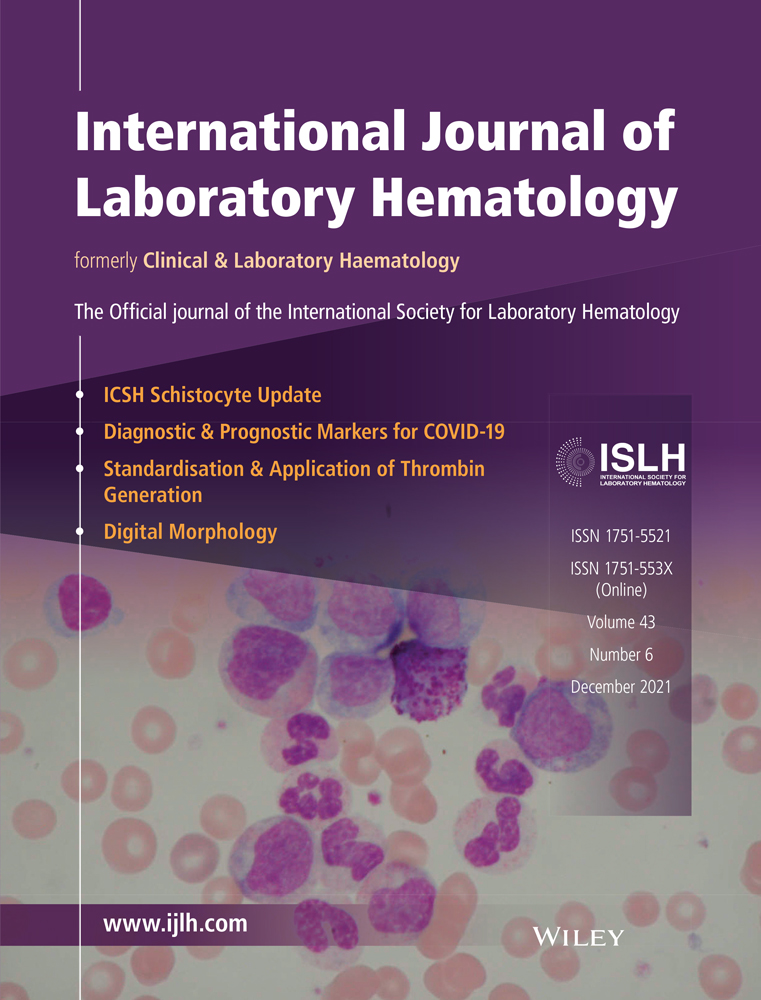Investigation of platelet function in patients with chronic kidney disease stages IV-V
Funding information
This research was supported by the NIHR Cambridge Biomedical Research Centre (BRC-1215-20014). The views expressed are those of the authors and not necessarily those of the NIHR or the Department of Health and Social Care. AK received an unrestricted grant from Blackstone Tutors
Abstract
Introduction
Patients with renal failure are at increased risk of both bleeding and thrombosis. Further descriptions of laboratory investigations in these patients are required.
Methods
Investigation of 24 patients with chronic kidney disease (CKD) stages IV-V with light transmission aggregometry, platelet secretion assays and platelet nucleotide analysis. Patients were in a nonbleeding state and not on antiplatelet medication. Results were compared with our local reference range used within the clinical haematology service.
Results
Of the 24 patients, two had decreased responses to arachidonic acid, adenosine diphosphate, collagen, thrombin receptor activator peptide-6 and one had decreased responses to high dose ristocetin, and one had increased response to low dose ristocetin. 11 and 13 out of 24 had abnormal platelet secretion release to collagen and thrombin, respectively. Platelet nucleotide analysis in patients was normal with the exception of a reduction in ADP content in one patient and ATP/ADP ratio in one patient.
Conclusions
In our collection of patients with CKD investigated for platelet function in the nonbleeding state, they generally had normal light transmission aggregometry and nucleotide analysis but around 50% had decreased platelet secretion assays. These results could be important in determining the significance of platelet function tests in patients with bleeding symptoms and renal failure. Further characterization of platelet function tests in future will help characterize haemostasis in renal failure further.
CONFLICT OF INTEREST
The authors have no competing interests.
Open Research
DATA AVAILABILITY STATEMENT
Data from this study will not be made available.




